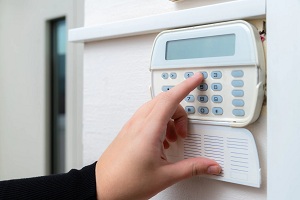The Georgia General Assembly has passed a bill that bans local governments from issuing fines to alarm companies over false alarms incurred by their customers through no fault of their own. The legislation, which is expected to be signed by Gov. Brian Kemp later this month, voids ordinances like the one enacted by Sandy Springs in 2017 that has led to a protracted legal battle between the alarm industry and the city.
“This bill has wider implications than for just our industry,” John Loud, Vice President of Electronic Security Association (ESA) and President of LOUD Security Systems, said in a statement. “The concept of fining a company for a problem caused by its customers is the equivalent of sending someone’s speeding ticket to Ford and sets a precedent that could be a threat to many industries.”
“These policies do little to change user behavior, deny the user the right to confront their accuser and access to due process, and fines an innocent party for the actions of another,” added Stan Martin, Executive Director of the Security Industry Alarm Coalition (SIAC).
Though Sandy Springs had been successful in defending its ordinance in court, only one other municipality in the state, Brookhaven, decided to adopt similar legislation. Officials in both cities claim that the measures had a significant impact in reducing the number of false alarms responded to by police.
Brookhaven, for example, recently provided data to the Atlanta-Journal Constitution showing a more than 50% reduction in false alarms from 2015 to 2020. “Ultimately what this ordinance has done is it has given alarm companies a real, tangible reason to make sure that their systems are in good working order,” Brookhaven Police Lt. David Snively told the AJC at the time.
However, Martin contends cities that have enacted laws fining alarm companies have never proven to be more effective at reducing false alarm calls than those that have adopted SIAC’s model ordinance. “The model ordinance, which fines alarm users, obtains an average 60% reduction in false dispatches and impacts those causing most of the problems. In fact, 85% of alarm systems generate no calls to the police in any given year,” Martin said.
Under the new Georgia law, alarm companies could still be held responsible for false alarms due to faulty equipment or installation or if they fail to use a mandated system requiring two calls to an alarm site before notifying police.
A number of other states, including California, Florida, New Jersey, Texas, Tennessee and Iowa have also passed laws in recent years barring cities from directly fining alarm companies for false alarms suffered by customers.








